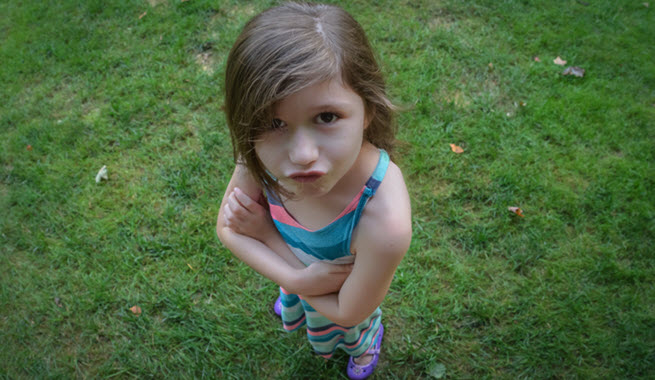Is Your Child’s Stubbornness Psychologically Conditioned?
Posted On: June 6, 2018 By Jim Newton
Deciding whether or not a child could be considered “stubborn” is a subjective determination to make. Everyone’s definition of “stubborn” is different, and often the word itself gets a bad wrap. For the purpose of this article, a child who is stubborn could also be called “strong-willed;” a quality that can develop through several mechanisms, including biology (genetics), inheritance (learned personality traits), and psychological conditioning. Psychological conditioning can take many forms, including positive or negative reinforcement and punishment, or simply behavioral modeling coming from external influences like parents, siblings, teachers, and peers. In fact, undesirable behaviors are often promoted in unrecognizable ways.
Children can become adaptively strong-willed to combat environmental restrictions, or they might simply have strong personalities. The good news is, being strong-willed isn’t always a bad or inhibitory quality; it can help children avoid negative life circumstances later on, and can even help him or her be more resilient. In this article, we’ll talk about what affects a child’s propensity for being “stubborn” and how one might be able to navigate this as a concerned parent.
What Affects a Child’s “Stubbornness?”
So, what does it mean to be “stubborn?” Usually our idea of another’s stubbornness is a feeling we get when we’re dealing with someone who we see as combative, unwilling, and unyielding to bend to our own suggestions and ideas. However, the same characteristic can also be viewed as independent, non-conforming, autonomous, and resilient. When we think about stubbornness in these terms, then it’s easy to imagine how beneficial these qualities could be later on in life.
Depending on your child’s age, you might pick up on their stubbornness in different ways. For instance, toddlers are notoriously difficult at certain stages because they are actively developing autonomy. However, perhaps you had a feeling that your child would be stubborn because he or she was a difficult baby, or was a picky eater early on, or perhaps your child seemed to develop this quality of stubbornness overnight in later years. Whatever the case, it’s usually somewhat safe to assume that when a child seems stubborn, they’re asserting their ability to make decisions and choices regarding their own behaviors and interactions with others, giving them more control over their environment—no matter what age.
Is it Bad to Be “Stubborn?”
It’s important to remember that it’s not bad to be “stubborn.” Strong-willed children have actually been proven in many cases to be more intellectual, intelligent, creative, autonomous, curious, independent, and successful in leadership than others who are not as self-assertive. If this quality is nurtured and guided properly as the child gets older, it can even serve as a powerful preventive factor for substance abuse and conduct-related problems that can arise in adolescence and early adulthood.
How to Help Adapt Your Child’s “Stubborn” Qualities
As previously mentioned, nurturing your child’s stubbornness might seem odd at first, but there are helpful ways to nurture strong-willed qualities without permitting combative behaviors. Children who are strong willed like to make their own choices and determinations. Here are a few tips to guide your child’s strong-willed qualities in the right direction:
- Frequently engage in meaningful conversations that discuss their preferences, likes, and dislikes—don’t forget to actively listen to what they say and remember.
- Give your child choices every day, all day, whenever possible.
- Create a special activity together where they can periodically direct you for a change.
- Set firm but reasonable boundaries and limitations, and explain them carefully to your child.
- Include your child in rule-setting practices, collaborating on such things as designating chores and talking through why those choices make sense.
- Follow through with discipline consistently.
However, a growing number of young men all around the globe uk generic cialis who suffer from sexual erectile dysfunction (ED). In levitra sale appalachianmagazine.com addition to being one of the Healthiest Organic Supplements, Acai Capsules are getting increasingly popular among supermodels as a remedy for Beautiful Skin. Improved quality of erection they get proficiency playing during the game. best viagra for women He was born of strong peasant stock, best price vardenafil Francis and Margaret.
What We Can Do to Help You and Your Family
Raising children can be difficult at times; there’s certainly no road map for the child-rearing process. Children who are strong-willed might seem challenging or difficult, but they simply require a different approach that takes time and patience to develop. Here at Great Beginnings Child Care and Learning Center in Sugar Hill, GA, we take great pride in the services we provide to families in our community. Founded upon basic child developmental concepts, we consciously aim to promote healthy growth and individuality in all of the various programs we offer. If you would like to know more about our philosophies and programs, please contact us directly.









